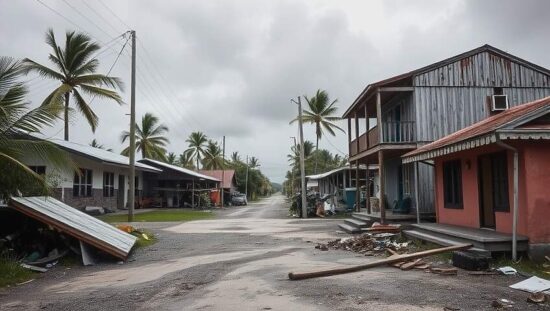The German government is currently assessing potential humanitarian aid packages following the devastating impact of Hurricane “Melissa” across the Caribbean. A spokesperson for the Federal Foreign Office acknowledged in Berlin that the situation remains complex, stating that a full assessment of needs is still underway. “We, as the Federal Government and the Foreign Office, are examining how we can provide timely and needs-based assistance from a distance” the spokesperson stated.
Germany is a significant contributor to several international humanitarian mechanisms, including the United Nations’ Central Emergency Response Fund and the World Food Programme, alongside supporting aid through various international organizations. This financial commitment has drawn scrutiny regarding the efficacy of these systems in rapidly deploying resources to areas of immediate crisis like the one presented by Hurricane Melissa. Critics argue whether contributions are being utilized effectively and whether increased direct aid channels might prove more efficient in responding to rapidly developing disasters.
Hurricane Melissa, described by some experts as a “storm of the century” made landfall in Jamaica on Tuesday afternoon (local time) as a Category 5 storm, inflicting widespread destruction. Its exceptionally low atmospheric pressure, recorded at 892 millibars – lower than that of Hurricane Katrina in 2005 – amplified its destructive power, creating intensely powerful winds. Sustained wind speeds inside the storm reached up to 300 kilometers per hour.
The extent of the damage in Jamaica remains largely unknown, with the Red Cross characterizing the situation as a “disaster of unprecedented magnitude”. Entire communities are reportedly submerged and wind damage is described as devastating. Over 530,000 people initially lost power and reports indicate widespread road closures, fallen trees and severe flooding across numerous communities. Information regarding potential casualties is currently unavailable and expected to be difficult to ascertain.
Cuba has also suffered significant impact, with the hurricane, downgraded to Category 3, impacting the island’s eastern coast on Wednesday with wind speeds reaching up to 193 km/h. The full scale of the damage on Cuba is likewise yet to be determined.
The unfolding crisis raises broader questions about the vulnerability of Caribbean nations to increasingly intense weather events, exacerbated by climate change and the adequacy of international response mechanisms to provide swift and meaningful assistance. While Germany’s financial contributions to international funds are significant, the current situation may prompt debate about the balance between these commitments and direct, targeted aid delivery.





